A long time ago I read a book called ‘Iron John’ by Robert Bly. It is based on a Grimm’s story and is a book about men.
In the story ‘Iron John’ lives at the bottom of the pond. After he gets out of the pond, he is put in a cage by The King. A young boy loses his golden ball after it rolls into the cage with hairy Iron John. The only way the boy can get his golden ball back is by freeing him from his cage, and to free him he has to get the key from under his mother’s pillow.
I am not completely sure about this story, mostly because I haven’t ever really dreamt of a hairy wild man at the bottom of a pond. But I can get it, I look at it through the period of boyhood (or adolescence, or somewhere between childhood and manhood). Where there is something about a boy finding more of his masculine identity. In the story the young boy has to get his golden ball back and to do that he also has to free the wild man - Iron John - and to do that he has to steal the key from under his mother’s pillow.
Freud might like this story, he had a lot to say about boys and their mothers. He reminded us of the Oedipus Complex or the Mother problem (and the primary entanglement with the Mother). And not only in Freud, but in Jung too, we get this idea of the Mother as the first and powerful carrier of the feminine. She is our ‘first world’ said Jung. She is the ‘first love of our life’ he said. We love our mother, and psychologically speaking, that might be the point (because we can't stay in the lap of childhood forever).
The Mother rules over family and childhood, we could say. The Mother ‘Complex’ could be wanting to stay in the ‘lap of the mother’ for too long. Wanting to stay in the charmed circle of childhood. And somewhere in puberty there is psychologically speaking, a further cutting of the umbilical cord. To put it in the language of the story, we might have to steal that key from under the mother's pillow, to find more of our place in the world.
Anyway, I was close to my mother, and I know there is an awkward time for any boy, when you realize how much you love your mother, but that you might also have to break away to find more of yourself). I am just following this story, for a while, and in the story the young boy has to get his golden ball back and to do that he also has to free the wild man - Iron John - and to do that he has to steal the key from under his mother’s pillow.
In a story about Aboriginal initiation, I read, once a boy reached a certain age his mother would stop talking to him. Not only that, all of the women in the tribe stopped talking to him(the women turned away from him, and he was kicked out of the mother’s realm). And he had to go and hang out with the men, for a while, and do the ‘men’s business’. In this puberty rite the boy has to leave his mother’s realm and enter the Father's realm.
He is initiated by older men into the first stories of the tribe (it is like a traditional ‘rite of passage’). And through traditional ‘rites’ there is some kind of a separation that takes place from the Mother. And boys are initiated into a more adult world and more of their masculine identity. ‘There were intricate ‘rites of passage’, said Jung, ‘in so-called primitive societies’. ‘Because the mother is the first bearer of the soul image, separation from her is a delicate and important matter of the greatest educational significance’.
He goes on to say “Accordingly amongst (so-called, primitives we find a large number of rites designed to organize this separation’. ‘The mere fact of becoming adult and of outward separation is not enough; impressive initiations into the ‘men’s house’ and ceremonies of rebirth are still needed in order to make the separation from the mother (and hence from childhood) entirely effective’. Of course, we don’t have these formal initiation rites, anymore, but maybe, it can still give insight, into a psychological process that takes place.
According to Jung, ‘‘separation from the mother might not always be entirely effective’’. There might be some mothers that don’t really want their sons to get those keys, because they would like the childhood to continue. And their might be some sons that don’t really want to steal those keys because they would also like the charmed circle of childhood to continue. Or it can be like a conspiracy said Jung between the mother and the son to stay in childhood. They might both want for the situation of childhood to continue.
It is hard to know who is more at fault said Jung. And Robert Bly wasn’t that fond of the mother bound son, which he often associated with the ‘New Age’ boys. They are nice, and polite and sensitive, and all of that, he seemed to be saying, we like them, they can have good manners, but they might not have stolen the key from under their mother’s pillow, yet.
They might not have found that natural man who is still locked up or caged in the ‘psyche’ like Iron John. They still haven’t made the initiation into manhood (or into adulthood). Robert Bly was influenced by Marie Louise Von Franz and neither of them liked the ‘Mama’s Boy’, that much. This story of Iron John was like a story of male initiation for Robert Bly.
…………..
But I have always liked something I first read in James Hillman. That in the second half of life, if we follow Jung, the initiation for men, might be more likely through the feminine(the feminine not like the mother). It might even be the way of ‘individuation’, as Jung has called it.
It is something like, whilst in the first half of life(loosely speaking), the initiation for boys, was about being initiated into more of their masculine identity(and in becoming a man), in the second half of life, there is a different kind of initiation that might take place through the feminine.
Let’s say, someone is grounded in their masculine identity. But in the second half of their life, the one-sidedness of their masculinity, might become a problem(and if that happens everything can start to dry up or become barren, if not destructive). That kind of one-sided development might eventually lead to a road of ashes descent and grief as Robert Bly calls it.
In some ways, in the second half of life, it is not so much heroic, or something like that. It is not St George conquering the Dragon, but it is more like Sir Gawain looking for a cup or a chalice. ‘A man is asked to love his own soul’ as Hillman said. And the soul always loves ‘depth’. And renewal might come more through the feminine. To put it another way, somewhere in the mid-life a man might be confronted by aspects of his inner life, or forced into a kind of ‘deepening’ (and that might include more of hisdeep feeling life, or the óther’ side of himself. I am not saying it is this formulaic, but something like that.
And that is not quite what we learnt at the 'School of Masculine Heroics' where they didn’t like ‘touchy feely’ subjects that much, or any undue Latino emotional expressiveness, and where the main thing was never to show any weakness, and where the inner life and the feeling life was seen as inferior, or as messy or chaotic, and maybe scarier than killing a wild bull, and it goes against some of the most basic training of the heroic model.
A man might have to turn towards the ánima' in Jung’s language, and that might happen either willingly or unwillingly, and whether he likes it or not, or he might get dragged kicking and screaming. And the ‘anima’ is like the archetype of relationship or the archetype of life as Jung has called it. And it might include some kind of descent, and more of an intimacy with this side of themselves, which can also be a source of renewal.
He might have to take some of the body armor off, and put down the sword, and drop some of the masculine superiority, or some of the ego strength, or some of the masculine defences. Because what is really needed is an openness, and a receptivity, and maybe more of an interiority or a 'depth', or maybe, an intimacy with his own soul. Even Hercules had to serve the Lydian Queen and spin and weave his female soul, for a while, as Hillman said. And the renewal can come through these movements ‘downwards’ into the soul. Which is also more like an individuation through the feminine.
According to Hillman, there are two figures from myth who are in good relationship with the feminine and both of them are non-heroic, in the traditional sense. That is Dionysus and Odysseus. Dionysus because of his natural affinity with the feminine (he was known as a ‘god of women’, enjoyed the company of women and was at home in their world). With Dionysus, he has always had the feminine as a structure of consciousness.
And Odysseus because he was surrounded by feminine figures that play many roles as Hillman says: Goddess (Athene), Mistress (Calypso), Devourer (Scylla and Charybdis), Enchantress (Circe), Mother-Daughter (Arete-Nausica), Personal Mother (Anticleia), Rescuer (Ino), Seductress (Sirens), Nurse (Eurykleia), and Wife (Penelope) — the feminine is there in The Odyssey, in all of its many forms. The feminine is guiding him towards Ithaca.

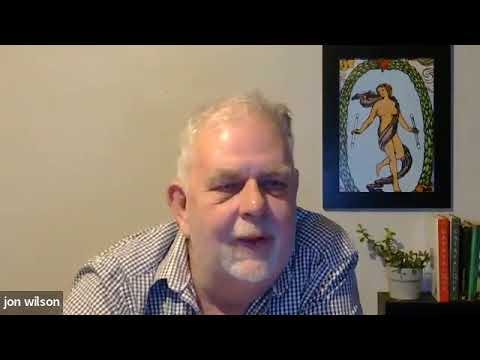




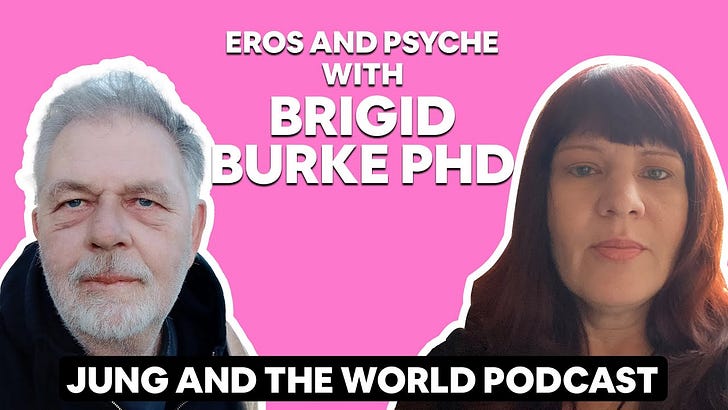
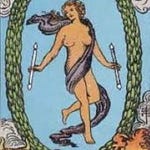


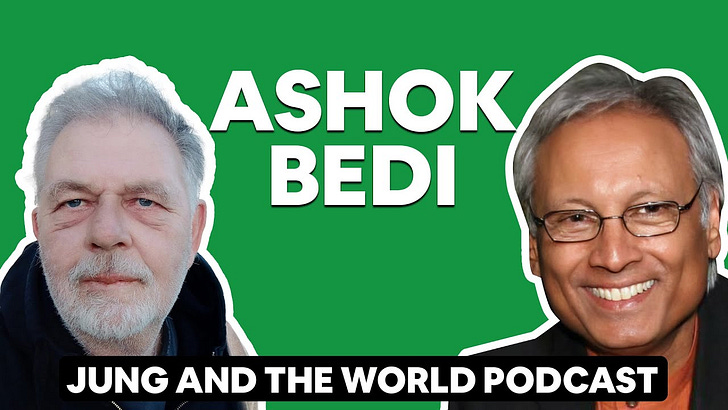
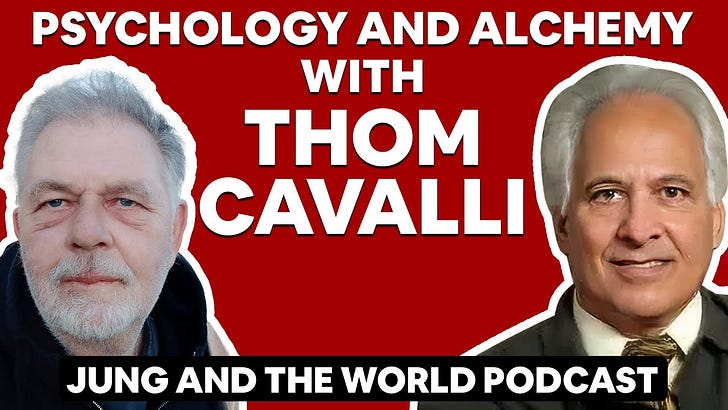
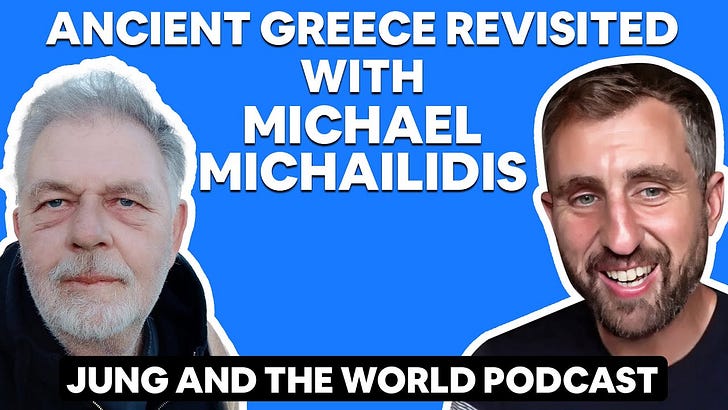
Share this post